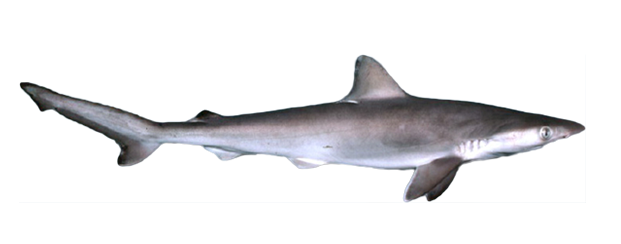Shark, Atlantic Sharpnosed

View Regulations

Scientific Name
Rhizoprionodon terraenovae


Description
The Atlantic Sharpnose sports a long, parabolic snout and can range from brown to greenish gray in coloration. It can also occasionally have pale spots on its body or darkened edges on its fins. Some of the teeth are often notched and the second dorsal fin and anal fin are aligned on the top and bottom of the body.


Habitat & Behaviour
The Atlantic Sharpnose Shark can be found foraging for food inshore, preferring to hunt in the surf. As such during the summer they can be found in relatively shallow depths while during the winter they move out to more moderate depths.


Natural Prey
The Atlantic Sharpnose makes a diet on smaller prey including fish and invertebrates.


Handling Tips
It goes without saying that you should steer well clear of any sharks mouth. They also have rough skin which if whipped on you can leave a rash. Little ones wiggle a quite a bit, grab behind gills and hold tail. Larger sharks tail snare if you can and keep in water. When releasing sharks try to leave as little line as possible. Hooks rot out in a few weeks. Pro Angler supports shark conservation and recommends you catch and release. If brought into the boat, leave for 15-20 minutes before handling, shark will tire and be easier to handle as their body is very strong as well. Known to even play dead before snapping at you, so be careful!

- Lucky Tackle Box
- Billfish Bounty in the Heart of the Mayan World – Guatemala
- The Best Species of Shark to Catch
- How to Catch a Shark: what equipment do you need?
- The Best Winter Fishing Spots in Texas






